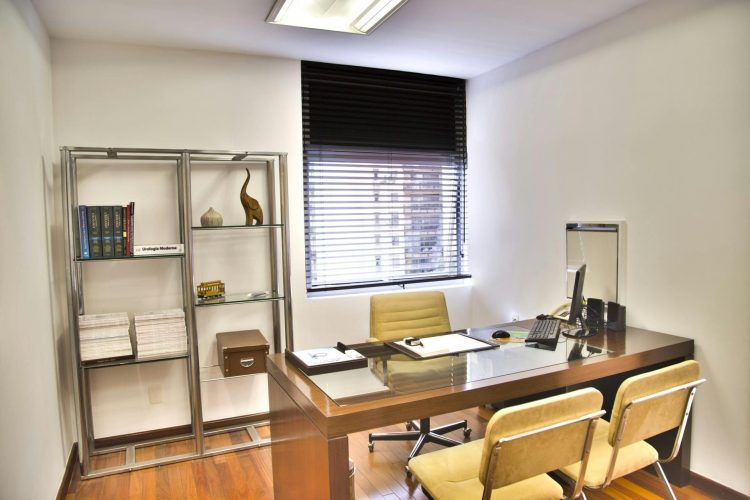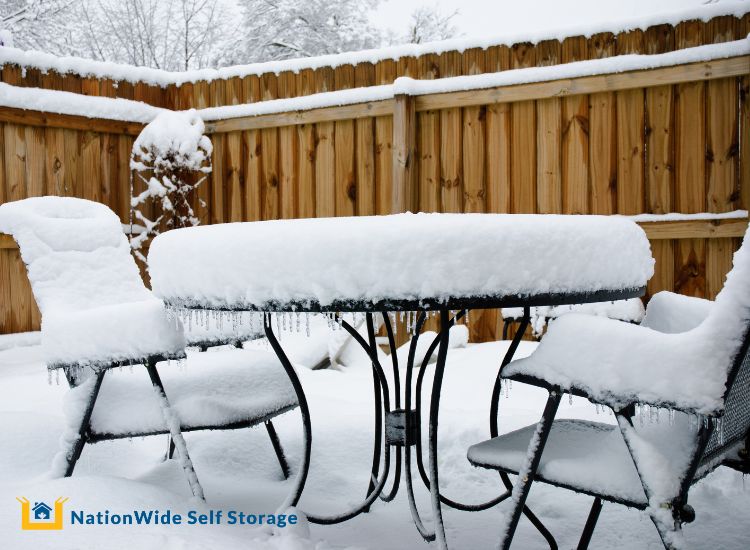November 03, 2021 | 4 minute read
Can You Write Off Storage Unit When You Are Doing Your Taxes?
When and How You Can Write Off Your Storage Unit
Are you interested in learning about how to write off your storage unit? The thing about taxes is that once you learn how to understand the system, it’s really not so bad. Or maybe it’s worth it to you to just pay someone to do your taxes for you.
One thing that you learn over time when doing taxes is how to write things off. The unofficial rules of doing your taxes correctly are that you file your taxes on time and file them with maximum deductions. And there are deductions for plenty of things – you just have to be sure you meet the conditions to claim the tax deduction.
Why, as a personal storage unit facility, are we talking about tax deductions? Because there are situations where you can write off your storage unit expenses.

Moving
People move from city to city and province to province all the time. And when you are moving for work – either because you have been relocated or because you got a new job – you may be able to claim some of your moving expenses, including your storage unit.
As mentioned, you will have to meet certain conditions. Moving for pleasure, to upgrade or downsize your home, or so your kids can be closer to their elementary school unfortunately don’t get you a break.
The basics are that if you are moving as a result of work (ie. a job transfer), or you are going to be running a business at a new location, you can qualify for tax deductions that apply to the move. Further, your new residence must be at least 40 km closer to the location of your new job, based on the shortest, usual, public route (as opposed to drawing a straight line on a map through the city).
Also, you may be able to claim moving expenses if you are a student moving for education. You must be enrolled into a legitimate course at a post-secondary school, and enrolled to attend full-time.
There is, of course, more fine print to go over that applies to the details of the situations.
But let’s talk about some of the things that you can, and can not, claim as a moving expense.
Moving expenses you can claim:
- Storage units, including personal self-storage and portable storage containers
- Movers, rental trucks, and the use of your personal vehicle
- Travel expenses associated with the move, including mileage, gas, meals, accommodations for you and the family, including temporary housing (for up to 15 days)
- Packing and moving supplies
- Cost of selling your current residence (real estate commissions, legal fees, etc.), and similar costs of purchasing your new home
- Other incidental costs related to the move, like replacement costs to update your address on all your identifying documents and vehicle permits. Even costs like connecting your utilities at your new residence count
Good to know, isn’t it? It really is good to consider this if you have been offered a new job or see an opportunity that might make you up end your life.
There are limitations, of course. You can’t claim every single that is related to your move, and you don’t want to be careless to open yourself up to a stressful audit. And you must remember that you need to meet the first criteria mentioned above – you cannot get a tax deduction for your move if your move is less than 40 km closer to your job or school.
Here is a non-exhaustive list of moving expenses that you can’t deduct:
- Expenses you incurred to clean or repair your current home, including landscaping or any services used to increase the value of your home
- Mortgage insurance
- Expenses related to house hunting (or job hunting for that matter)
- Costs related to delays in selling your property. For example, say you wanted to wait until the market goes up so you put off selling your home and needed to cover two streams of property taxes. This is not deductible.
- The cost of replacement for home items (window coverings, a shed that has to stay), or replacement costs for anything else you can’t take with you (gas cans, paints, chemicals, plants, etc.)
What’s Next?
So, as you can see, there are plenty of reasons to pay attention to the moving process, and save your receipts while you are in the thick of the chaos of moving. It can really save you a lot of money in the long run, and it’s always nice to have some deductions to focus on when doing your taxes.
If you are moving for school or work and need a secure, clean, state of the art self-storage facility in Vancouver, Burnaby, Surrey or Kamloops, connect with us today. We have storage lockers and units that can store the entire contents of your home at incredible value!
Popular Posts
-
A Better Way To Decluttering & Organizing
Instead of a room-by-room or little-by-little approach to decluttering, the KonMari Method™ encourages tidying by category – not by location – beginning with clothes, then moving on to books, papers, komono (miscellaneous items), and, finally, sentimental items.
Read More -
Storing Outdoor Furniture & Patio Accessories For Winter
Tips on storing outdoor furniture & patio accessories for winter. Instead of crowding your garage or basement, self-storage provides a safe, accessible location to store these items until warmer weather returns.
Read More



